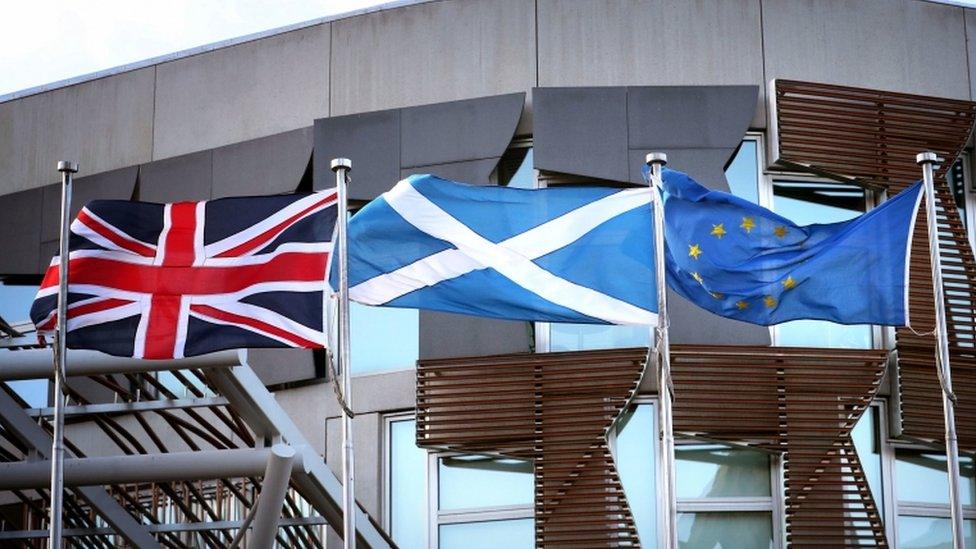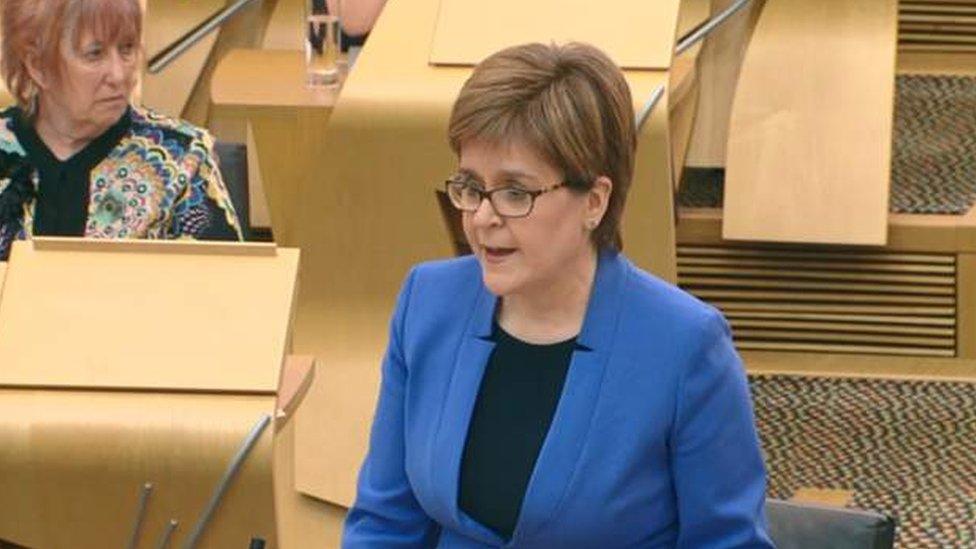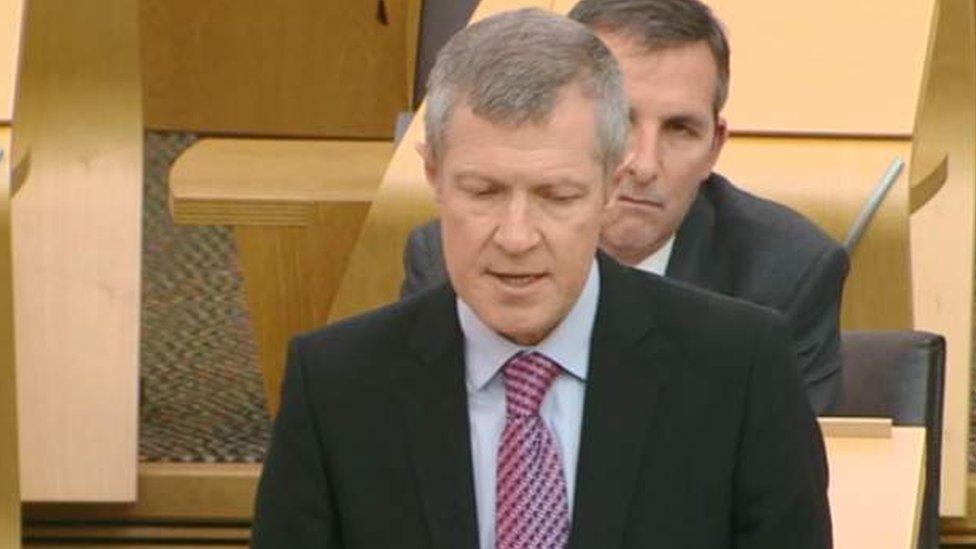Is Scotland scunnered with Brexit?
- Published

Let me join the chorus of congratulation which has attended the initiative by the University of Aberdeen to launch a substantial new linguistic study of vocabulary in the Scots language.
Long years ago, back in the Middle Ages, I had an unofficial role in the Commons press gallery, helping baffled Hansard reporters cope with the Scots words not infrequently used by Donald Dewar and others. I provided soothing translations.
I was delighted to note today that the Aberdeen endeavour is already mirrored at Holyrood.
Willie Rennie of the Liberal Democrats summed up Scotland's view of Brexit by declaring that folk north of the Border were "scunnered".
He could - and should - have gone much further down this welcome road. Perhaps he might have decried his rivals as fushionless.
But it's a start, chums. An attempt to revisit the language of Dunbar, Henryson and Douglas; the language of Burns, Fergusson and, yes, Scott; the language of Welsh, Kelman, Leonard and Lochhead.
At Holyrood, Nicola Sturgeon would undoubtedly endorse Mr Rennie's use of Scots words.
She agreed with him too when he argued that Brexit had been miserably badly handled by the prime minister.

Nicola Sturgeon agreed Brexit had been badly handled
But at that point their paths departed. Mr Rennie did not agree with the first minister that the answer to the Westminster guddle was to opt for Scottish independence.
Indeed, he was rather vocal on the subject.
The last thing Scotland needed, he argued, was to add what he called the chaos of independence to the crisis of Brexit.
Let us back-pedal a little.
Politically, Brexit is all-consuming. The PM is in Brussels as I write, seeking an extension to the scheduled date of the UK's departure from the EU. She has been told that such an extension would be conditional on the Commons backing the existing withdrawal deal - which has twice been overwhelmingly rejected by MPs.
Serious topics
Despite that, the two principal opposition leaders opted to steer clear of the subject in questioning the first minister.
To be clear, they chose deeply serious topics. Jackson Carlaw, for the Tories, asked about drugs deaths. Labour's Richard Leonard asked about hospital staffing.
Perhaps they felt they had said all they had to say on Brexit. Perhaps they had heard what the FM had to offer on the topic. Perhaps they felt decisions on this matter rested elsewhere.
For whatever reason, they steered clear.

Willie Rennie argued against independence
But Patrick Harvie of the Greens did not. He said Brexit argued for Scottish independence - and that the FM had promised to update her thinking on the subject.
He concluded his argument with a single word: "When?"
Ms Sturgeon said, having waited quite some time, it was right to give the Brexit process a further few days in the hope that clarity might emerge.
Alternative path
But she empathised with the frustration felt by those who, she said, witnessed the influence over Scotland and the rest of the UK currently deployed by DUP MPs and what she characterised as a cabal of right-wing Conservatives.
Westminster governance, she continued, was evidently broken and it was right to give Scotland the chance to choose an alternative path. She also agreed with Patrick Harvie that it would now be sensible to dump Brexit altogether.
At which point enter Willie Rennie, castigating independence. If ending a 40-year European link could cause such disruption, he argued, imagine what would ensue from ending the 300-year-old Union that is the UK.
Ms Sturgeon was unimpressed. She said Willie Rennie's argument amounted to doing nothing in the face of UK-imposed Brexit chaos. His stance, she said, was that Scotland should just "grin and bear it".
On with the clanjamfrie.